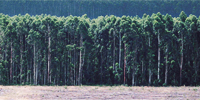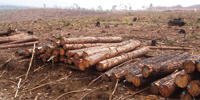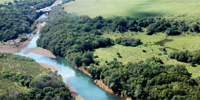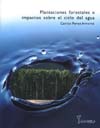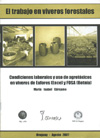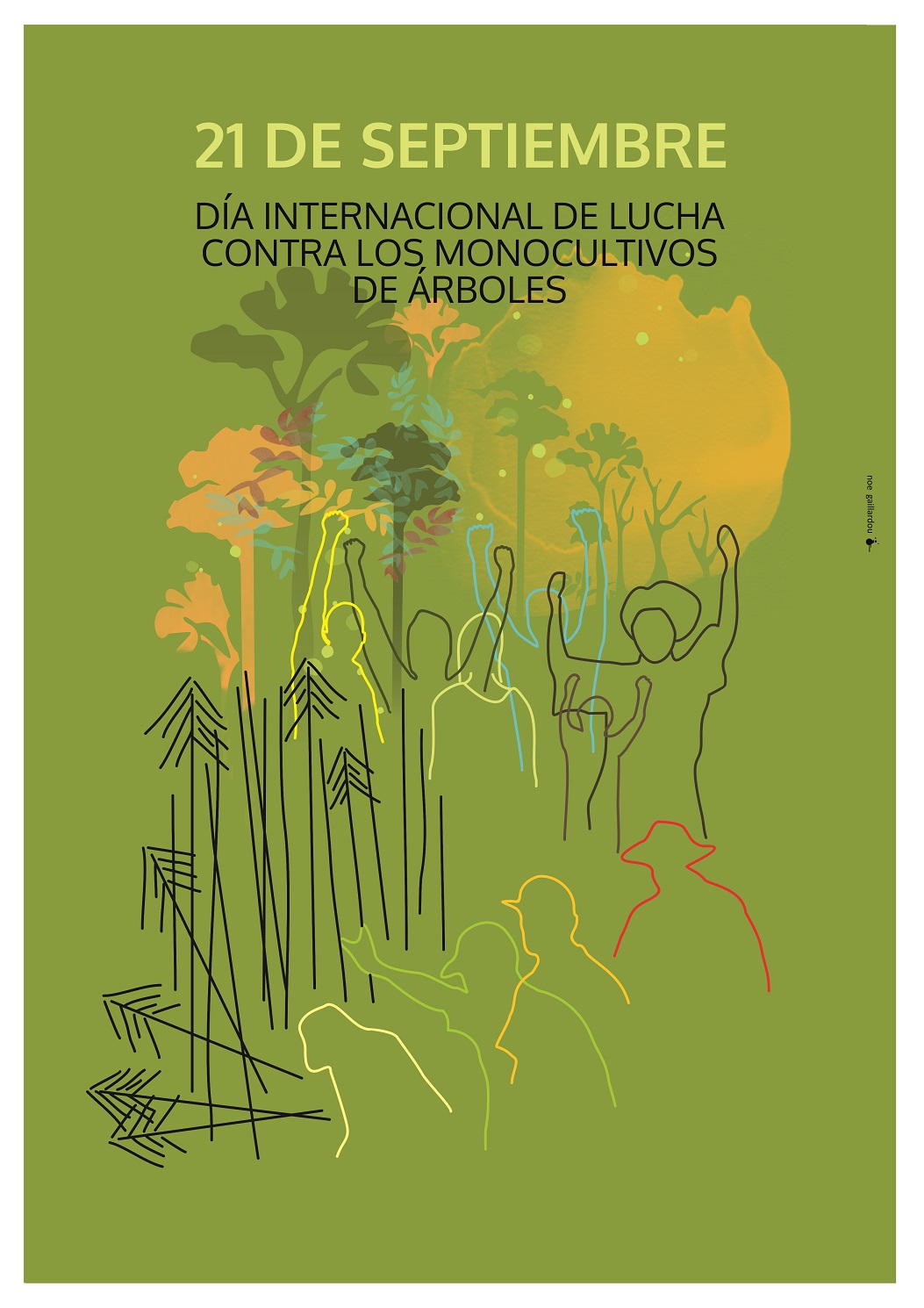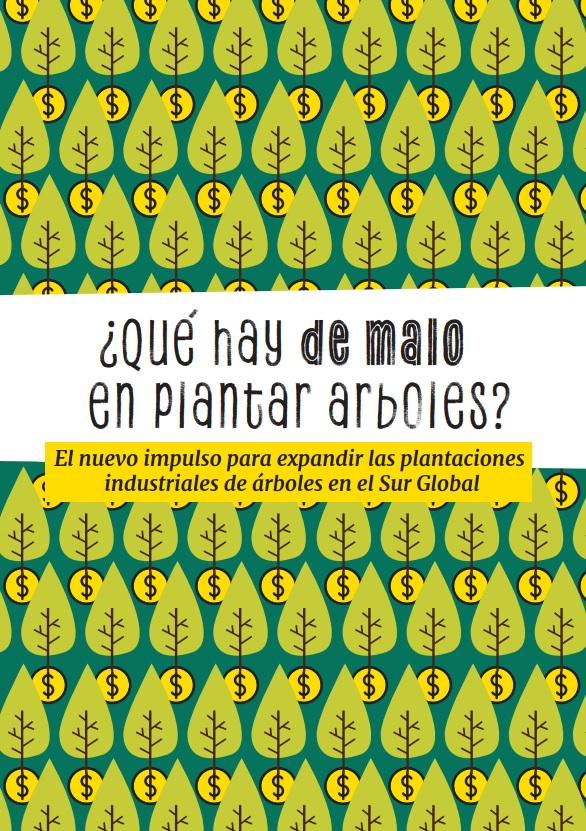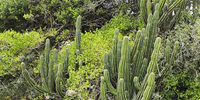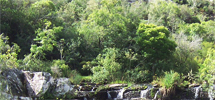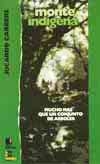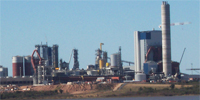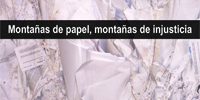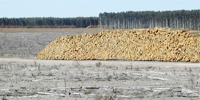The conflict with Argentina over the pulp mills has diverged the main hubs of a debate linking political issues with environmental issues. Today very little is said about the problems the forestry model has brought to local development, something that various Uruguayan environmental groups have been denouncing since the nineties.
By Victor L. Bacchetta
The organization Friends of the Earth Network-Uruguay (Redes-Amigos de la Tierra Uruguay) is one of the local environmentalist groups that has been questioning the forestry policy right from the start. “Brecha” had an interview with the sociologist María Selva Ortiz, who comes from the Department of Tacuarembó. She is married and has two children. She has been a member of the Network for 16 years and co-ordinates their public campaigns.
How does the national group of an international environmentalist organization operate?
Friends of the Earth International is a federation that is present in 65 countries. The groups in each country are independent regarding the issues they work on and the way they organize themselves. In Uruguay and according to the laws of the country, we operate as an NGO.
In Uruguay, what made them start focussing on the issue of forestation?
At the beginning of the nineties, when we started analyzing the environmental, social and economic impacts of forestation with other organizations, it was already possible to see what is happening today and the political error of having adopted this model for the country.
What political error are you referring to?
At that time, Luis Stolovich carried out some studies that showed, from the economic standpoint, the error of giving over agricultural land to forestation in the country. We have very fertile land in a planet where, in spite of extending the agricultural frontier, the area given over to food production is becoming smaller and smaller. Uruguay is allocating its land to planting trees, when the world increasingly values the production of foodstuffs. There is no comparison between the value of a ton of wood and a ton of meat. Furthermore, all the externalities of this model are present: subsidies, tax exemption, soft loans, wear and tear of the road system, all costs that are taken on by the State and eventually fall on the population.
If you started mobilizing at the beginning of the nineties, what assessment can you make of all these years of information campaigns and questioning of this model?
What we said would happen, happened. In the book “Forestación, un negocio para quién?” (Forestation, a business for whom?), that we published in 1996 with other organizations, we predicted a series of impacts. Two or three years ago, during a radio broadcast, Rosario Pou was demanding, on behalf of the Society of Forestry Producers, for even more support to solve their problems of the highway network and fire risks. We announced at the beginning of the nineties that this would happen and at that time the companies denied it totally.
In turn, there is another indicator. During the public hearings regarding the pulp mills in Fray Bentos, to which 600 people attended, we environmentalists did not have to take the floor because the local people (from the Departments of Río Negro and Soriano) set out the issues that we had been denouncing ten years ago. That is to say, in spite of the fact that the model has been consolidated, I believe there is great awareness among the people that it is a model that is no use to Uruguay or to Uruguayans.
However, we are a few months away from the launching of the Botnia plant’s operations and the government does not seem to be willing to curb this inauguration.
I believe that we Uruguayans have questioned the model of country we have. There is a reason for the change being voted, there is a reason for such a strong crisis. And the forestry model is part of this model of country. However, not only have we not changed our course, but this government has given much more support to the forestry model. The historical farmers neighbouring the plantations, people who know the countryside, are suffering from the impacts, they feel damaged and do not have anywhere to turn to. They feel absolutely impotent to revert a process that is aggressing them and putting pressure on them to leave.
Do you have any examples?
Tacuarembó farmers neighbouring the tree plantations have serious problems with their sheep, as the wild boars kill their lambs. In the area of Lambare, near Laureles, in the Rocha wetlands, a farmer had 60 sheep with their lambs, but one night the wild boars killed 55 sheep and 35 sheep belonging to a neighbour. The problem continued, with an average of five or six sheep getting killed per night, although they went out to kill the boars. This is just a small example. An economic loss that no one will cover; added to the lack of water in the summer. Very often the farmers feel that they have increasing pressure put on them due to economic problems and they have a multinational corporation offering them more money every day for their lands. These people do not want to leave. They are farmers, like so many others who still remain in Uruguay, who make their jackets out of their own sheep’s wool. However, conditions are increasingly inhospitable.
What are the prospects?
In the first place, this is a questioning as a country. This winter we have seen how the price of meat and other basic staples has gone up for ordinary people. In a food-producing country, we are facing problems to do with food. The Minister of Agriculture says that we must continue exporting as this is what sustains national economy, but the best lands are given over to monoculture pine, eucalyptus or soybean plantations, not intended for human consumption.
On the other hand, let us consider the country of the future. How are we going to be able to position ourselves vis-à-vis the demands of international markets in five or ten year time? Today these markets are already asking for quality, certified food in a world of a strong quality crisis. We can be a particularly appropriate country to achieve a good position in this field. If they demand more meat, more dairy products, what are we going to offer? Pulp.
This model is chosen by the country or imposed on the country? What is its rationale?
This is a model that comes from outside, due to pressure from multilateral banking, the World Bank and Europe. It is the fruit of a consumer society that increasingly requires more paper, even for superfluous uses, and that in turn does not want these industries in its own territories. Therefore, it is good to transfer them to other areas. They take the raw material –which is the pulp and paper production– while the most important and less impacting value is added over there. The dirty part, the social and environmental impacts of the process, they leave for us, their back garden neighbour.
These companies say that their activities in the country are socially and economically beneficial and environmentally sustainable. Is this a double discourse?
A little while ago I was with a Finnish journalist who had visited the Botnia plant and other places. I told him that these companies pay no taxes throughout the whole chain of production: they do not pay tax when they plant trees nor when they build the factory in a free trade zone and furthermore they have a port to export their production. The journalist asked me: “Then this is the same as United Fruit?” I told him that this is the twenty-first century enclave economy. The problem is that it is an enclave economy with a left-wing government. Very often the Europeans do not understand why these companies, when they enter their countries with their production, they have to pay taxes, but they don’t have to pay taxes here. It is a good deal for these companies, but not for us.
* This note is part of a series of interviews that the author carried out with representatives of NGOs and various research workers in the framework of the imminent launching of the Botnia plant. The interview was published in the Uruguayan weekly newspaper “Brecha”, 10 August, 2007 – http://www.brecha.com.uy

